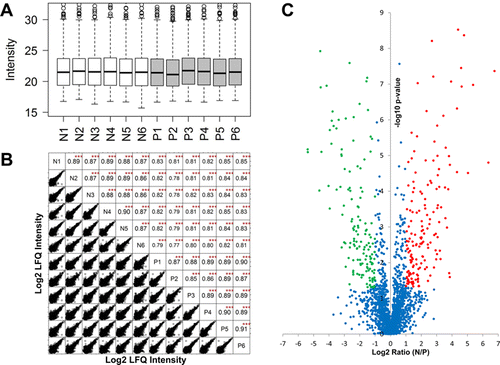Understanding proteins involved in fertility could help boost IVF success

Women who have difficulty getting pregnant often turn to in-vitro fertilization (IVF), but it doesn't always work. Now scientists are taking a new approach to improve the technique by studying the proteins that could help ready a uterus for an embryo to implant in its wall. Their report could help researchers develop a new treatment that could potentially increase the success rate of IVF.
The study appears in ACS' Journal of Proteome Research.
Chen Xu, Hu Zhou and colleagues note that nearly 50 million couples worldwide require some kind of medical intervention to conceive. Among the most common procedures is IVF, but on average, only about one-third of all attempts lead to pregnancy. In the majority of cases that fail, the embryo doesn't attach to the uterine wall. Why this happens has largely remained a mystery. To address this knowledge gap, Xu and Zhou's team looked at the proteins that could play a role in this process.
The researchers tested samples of the inner uterine membrane called the endometrium from twelve women. They identified more than 2,000 proteins and found that the levels of more than 300 of them varied significantly depending on whether the endometrium was ready for embryo implantation. Boosting or reducing the levels of some of these proteins may increase the possibility that an embryo would implant and therefore increase the IVF success rate. The researchers say the findings could also help them improve treatment of endometrium-related diseases.
More information: Label-Free Proteomics Uncovers Energy Metabolism and Focal Adhesion Regulations Responsive for Endometrium Receptivity, J. Proteome Res., Article ASAP. DOI: 10.1021/acs.jproteome.5b00038
Abstract
The menstrual cycle of the female uterus leads to periodic changes of the endometrium. These changes are important for developing the endometrial receptivity and for achieving competency of embryo implantation. However, the molecular events underlying the endometrial receptivity process remain poorly understood. Here we applied an LC–MS-based label-free quantitative proteomic approach to compare the endometrial tissues in the midsecretory (receptive) phase with the endometrial tissues in the proliferative phase from age-matched woman (n = 6/group). The proteomes of endometrial tissues were extracted using an SDS-based detergent, digested by the filter-aided sample preparation procedures, and subsequently analyzed by nano-LC–MS/MS (Orbitrap XL) with a 4 h gradient. Reliable protein expression profiles were reproducibly obtained from the endometrial tissues in the receptive and proliferative phases. A total of 2138 protein groups were quantified under highly stringent criteria with a false discovery rate of <1% for peptide and protein groups. Among these proteins, 317 proteins had differences in expression that were statistically significant between the receptive and proliferative phases. Direct protein–protein interaction network analyses of these significantly changed proteins showed that the up-regulation of creatine kinase B-type (CKB) in the receptive phase may be related to endometrium receptivity. The interaction network also showed that proteins related to cell–cell adhesion were down-regulated. Moreover, the results from KEGG pathway analyses are consistent with the protein–protein interaction results. The proteins, including alpha-actinin (ACTN), extracellular matrix proteins, integrin alpha-V, and so on, that are involved in the focal adhesion pathway were down-regulated in the receptive phase compared with the proliferative phase, which may facilitate the implantation of the fertilized ovum. Selected proteins were validated by Western blot analysis and indirect immunofluorescence, including the up-regulation of CKB and down-regulation ACTN in the receptive phase. In summary, our proteomic analysis study shows potential for predicting the endometrial remodeling from the proliferative to the receptivity phase in women, and these results also reveal the key biological mechanisms (such as energy metabolism and focal adhesion) underlying human endometrial receptivity.

















